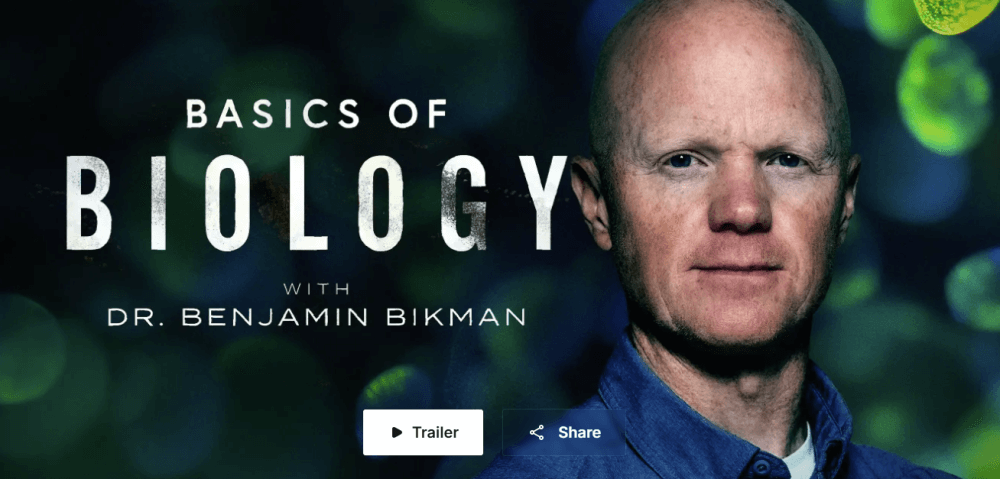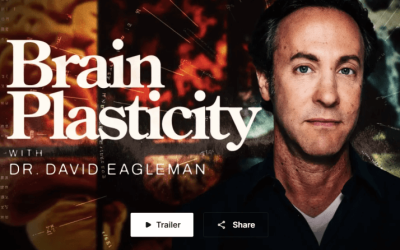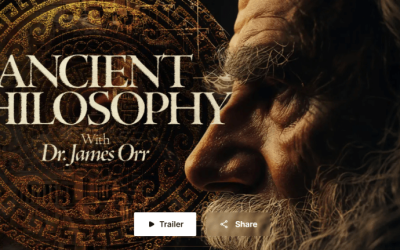🌟 New Year Offer 🌟
Celebrate 2025 with 30% OFF on all products! Use code: NEWYEAR2025. Hurry, offer ends soon!
How cells maintain homeostasis and function as the foundation of life, while highlighting their practical applications in human health, disease, and life on Earth.
Explores the principles of cell theory, and examines the structural components of cells, highlighting the differences between prokaryotic and eukaryotic cells.
File Size: 7.829 GB.
Format File: 6 MP4, 6 SRT, 7 TXT.
Peterson Academy – Benjamin Bikman – Basics of Biology

Dr. Benjamin Bikman
Biologist
In Basics of Biology, a six-hour course, Dr. Benjamin Bikman provides a comprehensive introduction to cellular biology, focusing on the cell as the basic unit of life and exploring essential biological processes. The lectures cover key topics such as cellular transport mechanisms, the structure and function of biomolecules, the flow of genetic information through the central dogma, cell division processes, and cellular metabolism. By integrating molecular and cellular biology concepts, the course explains how cells maintain homeostasis and function as the foundation of life, while highlighting their practical applications in human health, disease, and life on Earth.
Lectures
1. The Cell: Life’s Basic Unit
In our introductory lecture, Dr. Benjamin Bikman delves into the fundamentals of biology, focusing on the cell as the basic unit of life and its essential characteristics. He outlines seven criteria that define living organisms, explores the principles of cell theory, and examines the structural components of cells, highlighting the differences between prokaryotic and eukaryotic cells. Additionally, the lecture covers the various organelles within eukaryotic cells, their functions, and the critical role of the cell membrane in regulating the movement of molecules in and out of the cell.
2. Crossing the Cell Wall
In lecture two, we explore the vital concepts of cellular transport mechanisms, including diffusion and osmosis, and their roles in maintaining cellular homeostasis. The lecture examines various transport systems across cell membranes, from membrane-based structures like channels and transporters to vesicle-mediated transport methods such as endocytosis and exocytosis. The discussion concludes with detailed examples of transport mechanisms in action, including glucose transport in intestinal cells and the clinical applications of transport inhibitors in diabetes treatment.
3. Biomolecules as Building Blocks
In lecture three, Dr. Bikman describes the four major biomolecules essential for cellular function: carbohydrates, lipids, proteins, and nucleic acids. Dr. Bikman also delves into the structure and function of enzymes, explaining how these protein catalysts facilitate crucial cellular reactions, and explores their specificity in biological processes. Finally, we are introduced to the central dogma of molecular biology, detailing the flow of genetic information through DNA and RNA, which defines our unique biological identities.
4. The Central Dogma
In lecture four, we engage in a detailed study of the central dogma of biology, which describes the flow of genetic information from DNA to RNA to proteins. We explore the processes of DNA replication, transcription of DNA into messenger RNA (mRNA), and translation of mRNA into functional proteins, emphasizing how these steps determine the structure and function of cells and ultimately shape the human body. The lecture also addresses the importance of accurate DNA replication, the role of introns and exons in mRNA processing, and the potential impact of environmental factors like diet on cellular health and gene expression.
5. The Cell Cycle
In lecture five, we turn to an exploration of the cell cycle, focusing on the processes of mitosis and meiosis, and their roles in cellular reproduction and growth. The discussion covers the stages of cell division, chromosomal abnormalities, and concludes with an in-depth examination of sexual differentiation and development. The lecture emphasizes how genetic factors, particularly the SRY gene and hormone receptors, influence biological sex determination and explains various disorders of sexual development.
6. Metabolic Mechanisms
In our sixth and final lecture, we learn about cellular metabolism, focusing on how cells obtain and utilize energy through various pathways and processes. Dr. Bikman covers the breakdown of nutrients (catabolism) and synthesis of molecules (anabolism), with a focus on glucose and fat metabolism through glycolysis, beta-oxidation, and the citric acid cycle. The discussion concludes with a comparison between animal cell metabolism in mitochondria and plant cell photosynthesis in chloroplasts, highlighting their complementary roles in maintaining life on Earth.
Course Features
- Lectures 0
- Quizzes 0
- Duration 10 weeks
- Skill level All levels
- Language English
- Students 90
- Assessments Yes











